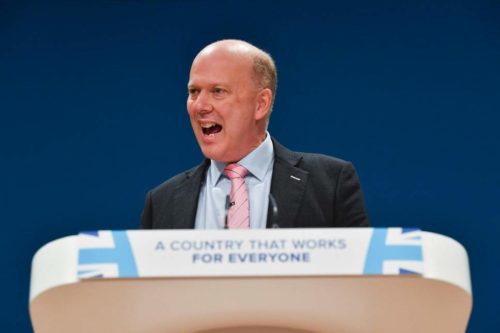
Britain’s Transport Minister, Chris Grayling, on Wednesday, clarified the award of a £14 million ($18 million) contract to a new company that has never previously operated a ferry route.
The United Kingdom in a move to ease congestion in the channel ports should it fail to secure a trade deal before leaving the European Union (EU) in March, awarded three contracts to charter extra ferries.
Seaborne Freight, a British business, won the smallest contract to operate freight ferries from Ramsgate to the Belgian port of Ostend.
“I make no apologies for supporting a new British business.
“We have looked very carefully at this business. We have put in place a tight contract to make sure they can deliver for us”, Grayling told BBC radio.
The minister added that he believed channel ports would be able “to operate normally in all Brexit circumstances”.
Asked how the government knew the company could run an effective service, Grayling said officials had carried out due diligence on the company. The decision to use the port of Ramsgate, he said, was not “something that we have plucked from thin air.”
Currently, Britain’s membership of the EU means that trucks drive smoothly through border checks within the bloc. But in a no-deal Brexit, even a few minutes’ delay at customs for each truck could mean vehicles backed up at ports and queued on feeder roads on both sides of the Channel.
Extra ships will be needed to work new routes across the Channel if the main terminals of Calais in France and Dover and Folkestone in Britain are clogged by customs checks.
Grayling, who campaigned for Brexit before Britain’s EU referendum, also said that Britain would be able to cope with a no-deal Brexit, saying he was confident that it would not cause problems at British ports.
